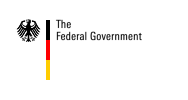In a statement made after the meeting, Foreign Minister Frank-Walter Steinmeier said the international community wants to continue to promote rapprochement between Palestinians and Israelis. He announced that the members of the Quartet are planning to hold their next meeting in the region, together with Arab partners who actively support the peace process.
The meeting in Berlin was attended by UN Secretary-General Ban Ki-moon, US Secretary of State Condoleezza Rice, Russian Foreign Minister Sergei Lavrov, Foreign Minister Steinmeier (representing the German EU Presidency), the High Representative for European Foreign and Security Policy Javier Solana, as well as European Commissioner for External Relations Benita Ferrero-Waldner.
The Quartet welcomed the efforts undertaken by Secretary of State Rice in the region and urged the parties to refrain from measures that would prejudge issues to be resolved in negotiations.
They discussed the ongoing effort to form a Palestinian national unity government in accordance with the agreement reached in Mecca on February 8. At the same time, they praised the role played by King Abdullah of Saudi Arabia in ending the factional violence between Palestinians.
Negotiations in difficult times
In a previous statement, made after a meeting with Rice, Steinmeier stressed how difficult the situation is for negotiations on the Middle East conflict.
Rice indicated that they want to wait until the process of forming the national unity government has been completed. She expressed her support for continuing a dialogue with Palestinian President Mahmoud Abbas, but also stressed that the future government will have to meet the conditions set by the Quartet.
Middle East Quartet
The Middle East Quartet is an international forum working for a just and lasting peace in the Middle East. It consists of the European Union, the United States, Russia, and the United Nations. The Quartet meets on an as-needed basis at either the senior official or the foreign minister level.
The Quartet met for the first time in 2002 in Madrid. The outcome of that meeting was the realization that this complex and chronic conflict can only be resolved on the basis of a coordinated international policy towards Israel and the Palestinians.
After a pause of several years Chancellor Merkel proposed restarting the Quartet's activities during a meeting with President Bush on January 5. The first meeting of the reactivated Quartet was held in Washington on February 2, at the foreign minister level.
Road Map
The Quartet put forward its Middle East peace plan, known as the Road Map, in 2003. It provides for the recognition of Israel's right to exist within secure borders and the creation of a democratic Palestinian state, i.e. a "two-state solution".
The peace plan was approved by the UN Security Council in a resolution adopted in November 2003, giving it the support of the international community.
The Road Map defines European Union policy towards the Middle East region.
